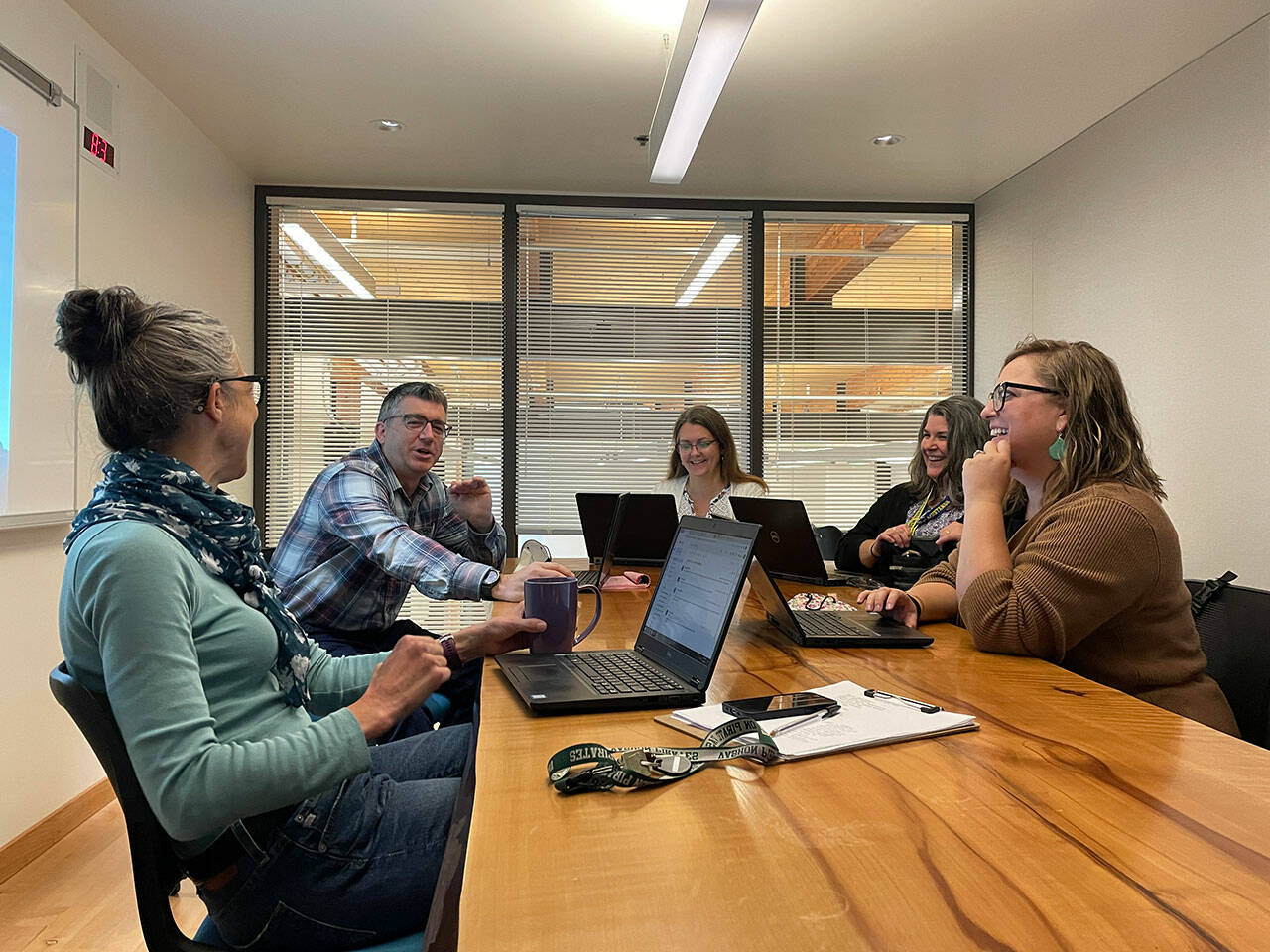The COVID-19 pandemic was difficult for everyone, particularly for students throughout America. Districts across the nation returned to school after remote learning to discover students struggling, academically, mentally, socially, and emotionally.
While those struggles still exist, counselors and other members of the Student Support Team at Vashon Island School District (VISD) have marveled at the resiliency students have demonstrated so far this year as everyone attempts to rebound from over two years under a deep COVID-19 shadow.
“I’m seeing students more involved across everything, wanting to be on ASB, getting involved at assemblies. The energy is so high, so good, and they are really excited about things beginning to return to normal,” said Vashon High School counselor Tara Vanselow. “Students are truly embracing the whole high school experience, and that is an example of demonstrating resilience after what they have been through.”
The Student Support Team at VISD consists of a multitude of individuals, primarily school counselors and social workers at each school. The team describes their work largely through the lens of three tiers: Tier 1 – service to all students; Tier 2 – targeted support to specific groups or individuals; and Tier 3 – individualized plans.
“You want the scale to be tipped towards Tier 1,” explained Vanselow. “Ultimately, we are working to help build skills for all our students so they have the toolbox to avoid reaching that crisis point.”
That work looks different across buildings and grade levels. Last year, at VHS, the counselors engaged ninth and 10th graders in academic success and focused on stress management for 11th and 12th graders. At the Chautauqua Elementary School, School Social Worker Kristina Miller and Student Support Specialist Lisa Radford work together to meet with every single class of students for 30 minutes each week.
“We work on learning skills that also apply to bullying prevention, or self-esteem development, helping kids become more meta-cognitive, gradually, as they are able,” said Miller. “We try to be ahead of the curve in terms of teaching skills and providing social-emotional learning for kids, developing a sense of belonging and voice.”
At McMurray Middle School, Tier 1 service shows up in many ways, including homeroom and clubs, explains counselors Yvette Butler and Mallory Shull. For homeroom, students are paired with the same teacher for three years, operating as a cohort throughout their Middle School experience in a multi-grade setting.
“Homeroom at McMurray is focused all around community, school culture, and social-emotional development,” said Butler. “All of our students receive that Tier 1 contact because they are in homeroom, and we can push social-emotional curriculum and supports, or if there is something in the school climate or culture that we need to strengthen, such as equity work or inclusive practices, we have that opportunity time and space to meaningfully engage the students.”
All of the counselors and social workers at VISD are quick to highlight that not all students have rebounded as quickly or easily as others from the pandemic, noting that anxiety amongst students is still much higher than it was pre-pandemic.
Butler and Shull mentioned how the cyclical nature of a school year usually allows for a slow warm-up period as a counselor. This year, students sought out their offices almost immediately as the school year began.
“We’ve normalized seeking support a lot at the high school and middle school level, so in a way, our work there is paying off,” said Butler. “I also see kids accessing us directly and approaching teachers to ask for help. That is a strength and a sign of resilience, recognizing that I am struggling and I will seek support.”
As the year progresses, the counselors across the District work with the teachers to seek out opportunities to connect with students and identify those who might need assistance before situations arise or worsen. Across all three schools, those opportunities showcase themselves in activities such as clubs and making sure that students always know they have someone they can talk with and count on, no matter what grade level.
“The families and teachers at this District are amazing, and it is one of the advantages of working in a smaller school setting,” said Shull. “As the year progresses, our teachers know their students really well. Even though every teacher has a lot of students, they still have personal connections and know when something is going on. They’ll flag them for us and give us more points of access.”
Due to how the State of Washington funds public education, student support teams are never as large as they should be in a perfect world. By relying on teachers, families, and the Vashon community, and with the help of universal screeners such as King County’s Check Yourself Survey, the counselors at VISD cast as wide of a net as possible to help support the student body.
Ultimately, the work of the counselors is reflected by students actively seeking support and help, and everyone connected to make this school year better than the previous. Although there is no obvious light at the end of the tunnel as the world tries to pull away from the long shadow of COVID, for Miller, the resolve to continue working is buoyed by the resilience of the students and knowing the impact being made.
“What I look for each day is that the kids feel like there is someone who will miss them when they are not here, someone that they can talk to and help them believe in themselves,” said Miller. “Our job is to help kids build their sense of self, believe in themselves, and develop skills to be successful in life.”



